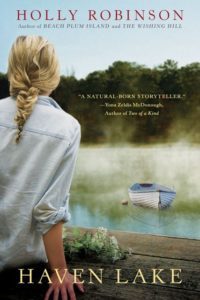People always think it’s exciting to be a writer—perhaps they’re picturing Hemingway on a big safari game hunt—but the reality is that it’s more like being Homer Simpson in front of the TV: you sit and snack a lot on sugary, salty treats while your brain goes into overdrive.
Probably the biggest challenge for me, as a writer who sometimes logs in 12-hour days to meet deadlines as a novelist, journalist and celebrity ghost writer for the past 25 years, is the intense temptation to eat junk while sitting.
My primary strategy for getting more exercise to combat the hours of butt-growing is to sign up for things I can’t get out of; for instance, for several years I was on a tennis team, which meant I had to call substitutes if I couldn’t play in a practice or a match, and that was SUCH a pain that I usually just sighed and went to tennis.
I also find it’s essential to have a gym membership close to something else you do. For the past four years, I’ve been going to a gym that’s walking distance from where my youngest son takes the bus to school. When he goes college, I’m going to switch to a gym next to the grocery store.

It’s hard not to feel guilty about avoiding exercise if you have to walk right past the place. In terms of curbing snacks, I find that it’s better not to work anywhere near the kitchen; we’ve put an office out in our barn, so that makes it easier to just bring bags of healthy snacks (carrots, cashews) out to work with me instead of dipping into the cookies, the way I often do if I’m working at the dining room table.
Most recently, as I’ve gotten older, I’ve gotten stiffer, and a long stint of writing can leave me hunched and moaning. I have a dog, so I frequently walk him when I’m feeling stiff—that’s also a good way to work out thorny problems with plots and characters—but, last year, even that wasn’t enough. I knew I had to do more to stay upright and able to touch my toes.

I am so NOT a yoga person—I’ve always associated yoga with navel gazing—but I finally signed on for yoga classes, just twice a week, and I can’t believe what a difference that has made in everything from my flexibility to my posture.
Dealing with Rejection and that “Not Good Enough” Feeling
Rejection, rejection, rejection! You’re always feeling like you’re not good enough, and it’s hard to keep working when doubt creeps into your head every time you try to put words on the page. I have been lucky in a lot of ways, in that I’m the sort of person who has a lot of happy bones in her body.
However, even for somebody like me, writing is one of those careers that can really take the sap out of you because you’re constantly hearing that your manuscript isn’t working or that the publishing industry is going down the tubes. Plus, people around you are apt to be talking about TV or politics or sports—anything but BOOKS—so it sometimes feels like you’re inhabiting a peculiar invisible universe!
For me, writing nonfiction proved to be the best tonic for my aggravated sense of self-loathing developed through time as my fiction was rejected, because nonfiction is so much easier to publish. I built a career as a journalist and ghost writer while I was writing novels and developing my fiction chops.
I just never gave up, mainly because I found the process of crafting novels so engaging that I couldn’t find anything I liked to do better with my free time.
I also built a community of writers through workshops and social media, and we can all go to each other to share this peculiar world and know we’ll be listened to and valued, or sympathized with if we’ve hit a rough patch.
I treasure my writer friends, especially the ones who are also weighed down by work responsibilities and families, because fitting in fiction writing in those situations is especially difficult—it often feels downright frivolous, since you’re not getting paid, and then you get pounded with rejections on top of that. Ouch!
The Darkest Moment: When My Editor Rejected My Novel
Probably the hardest point in my career was when an editor I’d worked with a number of times on nonfiction projects rejected my novel Sleeping Tigers. It wasn’t my first novel; it was more like my eighth, and she’d rejected several before that one, too. But somehow this felt different, I think because I really loved this novel, and I’d been rejected so many times that I was in despair.
I didn’t handle the rejection well—I remember a spell of weeping and drinking brandy and eating chocolate—but then I thought, well, that’s it. I’m done with the publishing industry. I will never sell a novel to a major publisher. I’m going to have to self-publish.
So that’s what I did, and it was a great experience. I self-published Sleeping Tigers, and it has gone on to do well. I recently sold the audio book rights to Audible.
And then, wouldn’t you know? My agent—who had patiently been submitting my work for over twenty years—sold the novel he was representing, The Wishing Hill, to that same editor at NAL/Penguin! I then published Beach Plum Island with her a year later, and in April my new novel, Haven Lake, will also be published by Penguin.
I’m finally living my dream.

Advice for a Young Writer: Staying True to Your Path Requires Passion and Persistence
I recently had a young woman ask me what she should write, fiction or nonfiction, if she was going to become a writer. I had to think about this, because the question felt all wrong. The real question isn’t what you should write to make a living, but what you want to write for YOU.
If you’re going to make it as any sort of artist—painter, actor, writer, whatever—you’re going to need grit and determination that will carry you through rejection and failure that will happen over and over again, not just the first time you start out to sell yourself or something you’ve created.
To stay true to your path as a writer requires, above all, passion and persistence. You become a writer because you honestly can’t find anything else that engages you as deeply intellectually, spiritually, and emotionally, because you’re going to need that depth of engagement to sustain your creativity through the years.
Beyond that, the only secret to making it as a writer is to not give up. The one true thing is that you will fail if you quit!
* * *
Novelist, journalist and celebrity ghost writer Holly Robinson is the author of several books, including The Gerbil farmer’s Daughter: A Memoir and the novels Beach Plum Island and Haven Lake. Her articles and essays appear frequently in The Huffington Post, More, Parents, Redbook and dozens of other newspapers and magazines. She and her husband have five children and a stubborn Pekingese in Massachusetts, where they’re fixing up a creaky old house one shingle at a time.
For more information about Holly and her books, please visit her website, check out her Facebook page, or follow her on Twitter.
 Haven Lake: Sydney Bishop hasn’t returned to Haven Lake, her idyllic childhood home, since a pair of shocking, tragic deaths shattered her family when she was only sixteen. Now a child psychologist engaged to marry a successful surgeon, Sydney has worked hard to build a relationship with Dylan, her fiancé’s teenage son, so she feels nothing but empathy when he runs away—until she discovers that his hitchhiking journey has led him to Haven Lake and her mother Hannah’s sheep farm.
Haven Lake: Sydney Bishop hasn’t returned to Haven Lake, her idyllic childhood home, since a pair of shocking, tragic deaths shattered her family when she was only sixteen. Now a child psychologist engaged to marry a successful surgeon, Sydney has worked hard to build a relationship with Dylan, her fiancé’s teenage son, so she feels nothing but empathy when he runs away—until she discovers that his hitchhiking journey has led him to Haven Lake and her mother Hannah’s sheep farm.
Sydney returns to Haven Lake for the first time in twenty years to coax the boy home. Against her daughter’s wishes, Hannah offers to take Dylan in until he’s ready to reveal his own troubling secrets. Now, for Dylan’s sake as well as their own, Sydney and Hannah must confront the devastating events that tore them apart and answer the questions that still haunt their family—and the suspicious surrounding community—about what really caused two people to die on their farm those many years ago. Available at Barnes & Noble, Powell’s, and Amazon.


Good for you for having the courage to self-publish! You deserve to be living the dream. And I love your health tips- they will work with my natural laziness instead of trying to swim upstream! I find that I have to keep all unhealthy food out of my house entirely, or it will be eaten. Lazy or not, I’m pretty motivated to get to the cookies when they’re there.
Oh, yes, I know what you mean: no cookies are safe in my house, even if I ask my husband to hide them! Thanks for stopping by to read the interview, Chere, and best of luck with your own writing & wellness plans!
This is wonderful, Holly! Great advice, and I sure do love your porch, what an inviting place to be! You are a great example of never giving up, and following your heart.
Thank you so much, Jill. You’ll have to stop by the porch some time!
I enjoyed this article along with Holly ‘ encouragement of other writers. Her sense of humor shines .
Thanks for stopping by, Diane. She does have a great sense of humor! :O)
Hi Diane,
You’re so sweet to stop by and read the interview. Thanks for visiting Colleen’s terrific site–and many thanks to Colleen for inviting me here!
Thank you for contributing, Holly! Such great thoughts here. :O)